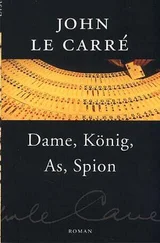John le Carré - A Murder of Quality
Здесь есть возможность читать онлайн «John le Carré - A Murder of Quality» весь текст электронной книги совершенно бесплатно (целиком полную версию без сокращений). В некоторых случаях можно слушать аудио, скачать через торрент в формате fb2 и присутствует краткое содержание. Жанр: Триллер, на английском языке. Описание произведения, (предисловие) а так же отзывы посетителей доступны на портале библиотеки ЛибКат.
- Название:A Murder of Quality
- Автор:
- Жанр:
- Год:неизвестен
- ISBN:нет данных
- Рейтинг книги:5 / 5. Голосов: 1
-
Избранное:Добавить в избранное
- Отзывы:
-
Ваша оценка:
- 100
- 1
- 2
- 3
- 4
- 5
A Murder of Quality: краткое содержание, описание и аннотация
Предлагаем к чтению аннотацию, описание, краткое содержание или предисловие (зависит от того, что написал сам автор книги «A Murder of Quality»). Если вы не нашли необходимую информацию о книге — напишите в комментариях, мы постараемся отыскать её.
A Murder of Quality — читать онлайн бесплатно полную книгу (весь текст) целиком
Ниже представлен текст книги, разбитый по страницам. Система сохранения места последней прочитанной страницы, позволяет с удобством читать онлайн бесплатно книгу «A Murder of Quality», без необходимости каждый раз заново искать на чём Вы остановились. Поставьте закладку, и сможете в любой момент перейти на страницу, на которой закончили чтение.
Интервал:
Закладка:
'What will it do, a dog like that? Will it attack, or what?'
'Depends how she's trained, old boy; depends how she's trained. She'll warn, though; that's the main thing. Frighten the fellers away. Shove a notice up, "Fierce Dog", let her sniff at the tradesmen a bit and the word will get around. You won't get a burglar within a mile of the place.'
They walked out into the garden again, and Harriman led the way to an enclosure with half a dozen Alsatian puppies yapping furiously at them through the wire.
'They're good little beasts, all of them,' he shouted. 'Game as hell.' He unlocked the door and finally emerged with a plump bitch puppy chewing fiercely at his jacket.
'This little lady might do you,' he said. 'We can't show her—she's too dark.'
Smiley pretended to hesitate, allowed Harriman to persuade him and finally agreed. They went back into the house.
'I'd like to pay a deposit,' said Smiley, 'and collect her in about ten days. Would that be all right?' He gave Harriman a cheque for five pounds and again they sat down, Harriman foraging in his desk for inoculation certificates and pedigrees. Then Smiley said:
'It's a pity Mrs Rode didn't have a dog, isn't it? I mean, it might have saved her life.'
'Oh, she had dog, but she had it put down just before she was killed,' said Harriman. 'Damned odd story between ourselves. She was devoted to the beast. Odd little mongrel, bit of everything, but she loved it. Brought it here one day with some tale about it biting the postman, got me to put it down—said it was dangerous. It wasn't anything of the sort. Some friends of mine in Carne made inquiries. No complaints anywhere. Postman liked the brute. Damned silly sort of lie to tell in a small community. Bound to be found out.'
'Why on earth did she tell it then?'
Harriman made a gesture which particularly irritated Smiley. He ran his forefinger down the length of his nose, then flicked either side of his absurd moustache very quickly. There was something shamefaced about the whole movement, as if he were assuming the ways of senior officers, and fearful of rebuke.
'She was trouble,' he said crisply. 'I can spot 'em. I've had a few in the regiment, wives who are trouble. Little simpering types. Butter-wouldn't-melt, holier-than-thou. Arrange the flowers in the church and all that—pious as you please. I'd say she was the hysterical kind, self-dramatizing, weeping all over the house for days on end. Anything for a bit of drama.'
'Was she popular?' Smiley offered him a cigarette.
'Shouldn't think so. Thanks. She wore black on Sundays, I gather. Typical. We used to call them "crows" out East, the ones who wore black—Sunday virgins. They were O.D. mostly—other denominations. Not C. of E.—some were Romans, mind… I hope I'm not…'
'Not at all.'
'You never know, do you? Can't stand 'em myself; no prejudice, but I don't like Romans—that's what my old father used to say.'
'Did you know her husband?'
'Not so well, poor devil, not so well.'
Harriman, Smiley reflected, seemed to have a great deal more sympathy for the living than the dead. Perhaps soldiers were like that. He wouldn't know.
'He's terribly cut up, I hear. Dreadful shock—fortunes of war, eh?' he added and Smiley nodded. 'He's the other type. Humble origin, good officer qualities, credit to the mess. Those are the ones that cut up most, the ones women get at.'
They walked along the path to the gate. Smiley said goodbye, and promised to return in a week or so to collect the puppy. As he walked away Harriman called to him:
'Oh—incidentally…'
Smiley stopped and turned round.
'I'll pay that cheque in, shall I, and credit you with the amount?'
'Of course,' said Smiley. 'That will do very well,' and he made his way to the bus stop pondering on the strange byways of the military mind.
The same bus took him back to Carne, the same conductor railed against his employers, the same driver drove the entire distance in second gear. He got out at the station and made his way to the red-brick Tabernacle. Gently opening the Gothic door, made of thickly-varnished ochre pine, he stepped inside. An elderly woman in an apron was polishing the heavy brass chandelier which hung over the centre aisle. He waited a moment, then tiptoed up to her and asked for the Minister. She pointed towards the vestry door. Obeying her mimed directions, he crossed to it, knocked and waited. A tall man in a clerical collar opened the door.
'I'm from the Christian Voice ,' said Smiley quietly. 'Can I have a word with you?'
Mr Cardew led him through the side entrance and into a small vegetable garden, carefully tilled, with bright yellow paths running between the empty beds. The sun shone through the crisp air. It was a cold, beautiful day. They crossed the garden and entered a paddock. The ground was hard despite last night's rain, and the grass short. They strolled side by side, talking as they went.
'This is Lammas Land, belonging to the School. We hold our fêtes here in the summer. It's very practical.'
Cardew seemed a little out of character. Smiley, who had a rather childish distrust of clergymen, had expected a Wesleyan hammer, a wordy, forbidding man with a taste for imagery.
'Miss Brimley, our editor, sent me,' Smiley began, 'Mrs Rode subscribed to our journal; her family has taken it since it began. She was almost a part of the family. We wanted to write an obituary about her work for the Church.'
'I see.'
'I managed to have a word with her husband; we wanted to be sure to strike the right note.'
'What did he say?'
'He said I should speak to you about her work—her refugee work particularly.'
They walked on in silence for a while, then Cardew said, 'She came from up North, near Derby. Her father used to be a man of substance in the North—though money never altered him.'
'I know.'
'I've known the family for years, off and on. I saw her old father before the funeral.'
'What may I say about her work for the Church, her influence on the Chapel community here? May I say she was universally loved?'
'I'm afraid,' said Cardew, after a slight pause, 'that I don't hold much with that kind of writing, Mr Smiley. People are never universally loved, even when they're dead.' His North Country accent was strong.
'Then what may I say?' Smiley persisted.
'I don't know,' Cardew replied evenly. 'And when I don't know, I usually keep quiet. But since you're good enough to ask me, I've never met an angel, and Stella Rode was no exception.'
'But was she not a leading figure in refugee work?'
'Yes. Yes, she was.'
'And did she not encourage others to make similar efforts?'
'Of course. She was a good worker.'
They walked on together in silence. The path across the field led downwards, then turned and followed a stream which was almost hidden by the tangled gorse and hawthorn on either side. Beyond the stream was a row of stark elm trees, and behind them the familiar outline of Carne.
'Is that all you wanted to ask me?' said Cardew suddenly.
'No,' replied Smiley.' Our editor was very worried by a letter she received from Mrs Rode just before her death. It was a kind of… accusation. We put the matter before the police. Miss Brimley reproaches herself in some way for not having been able to help her. It's illogical, perhaps, but there it is. I would like to be able to assure her that there was no connexion between Stella Rode's death and this letter. That is another reason for my visit…'
'Whom did the letter accuse?'
'Her husband.'
'I should tell your Miss Brimley,' said Cardew slowly, and with some emphasis, 'that she has nothing whatever for which to reproach herself.'
Chapter 13—The Journey Home
Интервал:
Закладка:
Похожие книги на «A Murder of Quality»
Представляем Вашему вниманию похожие книги на «A Murder of Quality» списком для выбора. Мы отобрали схожую по названию и смыслу литературу в надежде предоставить читателям больше вариантов отыскать новые, интересные, ещё непрочитанные произведения.
Обсуждение, отзывы о книге «A Murder of Quality» и просто собственные мнения читателей. Оставьте ваши комментарии, напишите, что Вы думаете о произведении, его смысле или главных героях. Укажите что конкретно понравилось, а что нет, и почему Вы так считаете.









